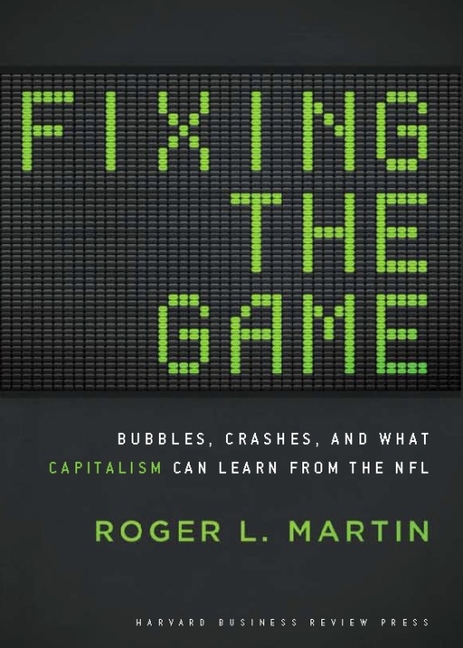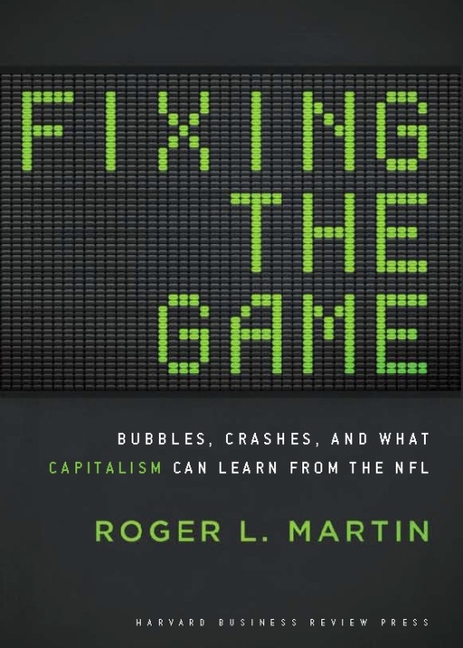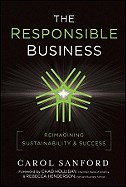Pychopaths, Tangled Webs, and the Possibility of a Moral Economy
June 17, 2011
How we have come to define the debate on free and fair trade in this country and around the world fascinates, and often frustrates me. I think trade needs to remain just that—free and fair—but I don't believe that "free" necessarily means "unfettered," or that "fair" means "protected. " Those that point to the fact that more open markets in China, India and elsewhere have pulled more people out of poverty more quickly than any other force in the history of the world have the past 30 years of evidence on their side, and those that argue that labor and environmental concerns need to have a seat at the table so that they're not being exploited have history on their side.
How we have come to define the debate on free and fair trade in this country and around the world fascinates, and often frustrates me. I think trade needs to remain just that—free and fair—but I don't believe that "free" necessarily means "unfettered," or that "fair" means "protected." Those that point to the fact that more open markets in China, India and elsewhere have pulled more people out of poverty more quickly than any other force in the history of the world have the past 30 years of evidence on their side, and those that argue that labor and environmental concerns need to have a seat at the table so that they're not being exploited have history on their side. These are not mutually exclusive options; they should, in fact, compliment one another. Observing the UK election last year, it was refreshing to hear the two front-runners, David Cameron and Gordon Brown, both talk about the need for maintaining a fundamental morality in markets. And Gordon Brown expounded on the topic beautifully on Charlie Rose last December after losing the election, citing Adam Smith's influence on his thinking:
Adam Smith ... was the father of modern political economy. His famous book was The Wealth of Nations, but he always considered his most important book to be The Theory of Moral Sentiments [about] how moral rules have got to underpin the working of a market system, and I think we've got to relearn that lesson today.
The books that have been landing on my desk recently have kept this thought percolating in my mind—and not always in the most uplifting manner. Jon Ronson's The Psychopath Test was a rather unlikely and depressing source. Bob Hare, a prominent figure in the book and the man that developed the checklist from which the book takes its name, sent the author's exploration of psychopaths in a new direction after he and the author witness a car crash as they were leaving a training session together. As if that crash suddenly brought up memories of crashes past, Hare turns the conversation they're having to Wall Street:
"I should never have done all my research in prisons. I should have spent my time inside the Stock Exchange as well."I looked at Bob. "Really?" [Ronson] said.
He nodded.
But surely stock market psychopaths can't be as bad as serial killer psychopaths," [Ronson] said.
"Serial killers ruin families," Bob shrugged. "Corporate and political and religious psychopaths ruin economies. They ruin societies."
That seems a bit hyperbolic to me, but Hare and others believe that psychopaths' hunger for power and lack of conscience lead them to occupy a disproportionate number of leadership positions—especially in corporate America, where ruthlessness can often be seen as a strength—and that they do an inordinate amount of damage in those positions. That idea led Ronson's investigation to Al Dunlap, the former CEO of Sunbeam and darling of Wall Street who was (in)famous for the apparent pleasure he took in downsizing companies and firing people. One of the most interesting parts of the book (and you can listen to an excerpt of this on NPR's This American Life) is when Ronson meets with Dunlap to subject him to Hare's checklist.
Their encounter is intriguing for a number of reasons: because of the fantastical world Dunlap inherits (his home, for instance, is filled with golden sculptures of animals of prey), because of the tense and awkward exchange when Dunlap discovers the reason Ronson has come to see him, and because while Dunlap does in fact have many "psychopathic" traits, he redefines them all as leadership traits:
"Okay. Item one. Superficial Charm."
"I'm totally charming," he replied. "I am totally charming!"
"Grandiose sense of self-worth? [Ronson] asked.
This would have been a hard one for him to deny, standing as he was below a giant oil painting of himself. [...]
"No question, said Al. "if you don't believe in yourself, nobody else will. You've got to believe in you." [...]
"Need for stimulation/prone to boredom?" [Ronson] said
"Yeah," said Al, "I'm very prone to boredom. I gotta do something. Yeah. That's a fair statement. I'm not the most relaxed person in the world. My mind does not stop working all night."
"Manipulative?" [Ronson] said.
"I think you could describe that as leadership," he said. "Inspire! I think it's called leaderhsip." It continues from there, and though those answers aren't all that satisfying and Al Dunlap doesn't sound like someone I'd want to have a beer with, you don't really get the sense that he's a psychopath. You leave the interview, as does the author himself, a little underwhelmed by the evidence and wondering if the "science" of diagnosing psychopaths is really more an ambiguous art form.
And, when it comes down to it, I'm not sure what we'd do about it if there really are a disproportionate number of psychopaths who end up in positions of power. How would we go about preventing it or weeding them out if that is true? A witch-hunt of supposed psychopaths in the halls of corporate America is certainly not a palatable option. (If you are concerned with how you can handle psychopathic behavior if it arises within your company, Bob Hare coauthored a book a few years back, Snakes in Suits, that might help.)
My worry is deeper, what if the system itself is psychopathic? After all, although it was the person of Al Dunlap marching through the South, closing Sunbeam plants and leveling towns like a modern-day corporate Sherman, it was the analysts on Wall Street that cheered him on—that not only didn't concern themselves with the effects that such economic destruction might have on the ground, on local and regional economies, but rewarded the company with ever higher stock prices for it. Even if Dunlap were a psychopath, he wouldn't have been able to carry out, and be celebrated for, the destruction he wrought while with Sunbeam without the backing of Wall Street. Speaking to "Jack," a moneyman on Wall Street who witnessed the destruction wrought by Dunlap while he was with the company, Ronson shares the following exchange:
"I disagreed with the job cuts," said Jack. "I said, 'Don't blame the people and the number of people.' You ever seen what happens to a community when you close a facility?"
"I went to Shubuta, [Mississippi]" [Ronson] said.
"I've been to these places." said Jack. "I've stayed at the little inns. I've been to the schools. I've been to the training centers and the tech areas. It's a joy. It really is a joy to go to these places. And then to see Wall Street applaud as they got destroyed..." Jack trailed off. "If you look at any research report from the time, it's so transparent to anyone who understands what's going on... ."
What do mean by 'research report'?" [Ronson] asked.
The "research reports"—Jack explained—are written by hedge funds and pension funds and investment banks, advising their clients on which companies to invest in.
"Wall Street, or the darker side that writes these research reports, lionized the job cuts in places like Shubuta," said Jack. "If you look at the community of support—if you grab research reports of the time—you'd be amazed at the comments."
"Like what?"
"The level of callous jubilance over what he was doing. You'd probably wonder if society had gone mad." [...]
"Of course that was all twelve years ago now," [Ronson] said. "Has anything changed?"
"Not anything," Jack said. "Zero. And it's not just in the U.S. It's everywhere. It's all over the world." After getting his hands on some of those research reports and realizing he couldn't decipher their meaning, he sent them on to Paul J. Zak of the Center for Neuroeconomic Studies who sent him the following reply:
"Bottom Line ... One investment house thought that most investors would cheer mass layoffs at Sunbeam. This is a remorseless view of people losing jobs. The only upside of this is that whomever followed this advice was seriously pissed at the investment house a year later when the stock tanked."
It turns out that massive layoffs and widespread cuts didn't help the company much (if at all) and the stock tanked when it was discovered that Dunlap and others were involved in massive accounting fraud and that the company's reported earnings were, in fact, fraudulent.
And that brings us to James B. Stewart's Tangled Webs: How False Statements Are Undermining America: From Martha Stewart to Bernie Madoff, which doesn't leave a much better taste in your mouth. In an odd connection to our last story, one of the book's main characters, Martha Stewart, lost $65,000 when her Sunbeam stock tanked. But it was a trade that she made money on that caused her the most trouble. And if you'd like to know every last detail of, and conversation she had about, the decision to sell her ImClone stock and the resulting storm that led to her being indicted on "eight counts of lying, obstruction, and conspiracy and one of securities fraud," Tangled Webs has an amazingly thorough and riveting 120-page account of that time.
The book is about how lying and perjury damage not only the pursuit of justice and the judicial system itself, but society as a whole. The book is broken into four parts: beside Martha Stewart the book also covers Scooter Libby and Barry Bonds, but perhaps the most fascinating character is Bernie Madoff:
In the end, it's impossible to quantify the damage Madoff's lies did, not just to his immediate victims but to an already fragile financial system or to stock prices, which plunged to new lows in the months after his arrest. By December 2008 the economy was already in recession and stock prices were falling precipitously. But Madoff's lies further shattered public confidence in the stock market, which surely cost investors untold billions in additional losses. His crimes also undermined public trust in financial institutions and the government's ability to regulate them, and incalculable loss that is still being suffered by all.
I was having a drink with a friend of mine a few weeks ago and, as always, our conversation was all over the place. But two of the more prominent topics of discussion that night were Wisconsin politics and how difficult it can often be to get things organized and accomplished right here in Milwaukee. I turned to him and said "You know, it's amazing that with all the incompetence and laziness in the world (my own sometimes included) that anything ever gets done." He looked down for a second, then looked me in the eye and said "Look at the world. Is anything really getting done?" That statement struck me particularly hard that night, especially because I had been reading the books I've been writing about here at the time and it seemed that the things that were getting done were moving us in the wrong direction. Needless to say, I didn't have a very positive answer at the ready for him. I just wanted another drink.
But I do believe there is a good answer, that there are more good people in the world and in business than bad—99.9 percent more that are sane than are psychopathic. And, you know what, all of the people I wrote about above were punished for their crimes—though you could argue Dunlap got off pretty easy, simply giving back $15 million of the hundreds of millions he was payed to ravage companies and the communities they had existed in, and never spent a day in jail.
As discouraged as we can sometimes get looking at all of the challenges we face, people are constantly working to find solutions. I feel blessed to be able to have a job in which I get to look for those ideas and share some of them with you here and on ChangeThis. Reading up a bit more about Al Dunlap for this post, I looked first (as we all tend to nowadays) at his Wikipedia page, and came across the following passage:
Dunlap believed that the primary goal of any business should be to make money for its shareholders. To that end, he believed in making widespread cuts, including massive layoffs, in order to streamline operations. By firing thousands of employees at once and closing plants and factories, he drastically altered the economic status of such corporations as Scott Paper and Crown Zellerbach.
Of course, he didn't "alter the economic status" of these companies long-term so much as he manipulated their stock price in the short-term. And that made me think about Roger Martin's brilliant new book, Fixing the Game, and his opinion on the matter:
It is clear that CEOs and CFOs do steer their companies to the consensus earnings forecast of the Wall Street analysts. If shareholder value is what matters, then they will deliver exactly what is expected of them in that arena, real performance be damned.
Martin shows that while "the proponents of shareholder value maximization and stock-based executive compensation must have imagined that these theories would focus executives on improving the real performance of their companies and thus increasing shareholder value over time ... these goals have prompted nothing of the sort." In fact, it has often focused CEOs and others' attention on short-term quarterly profits at the expense of the long term sustainability of companies, or as Martin puts it:
Shareholder value theory generates inauthentic behavior, reduces long-term returns, and increases volatility in capital markets. Plus, it speeds the emergence of a class of firms—hedge funds—that exist solely to prey on that volatility and that create no actual value for the economy.
The good news is that shareholder value theory is just a theory, and new theories, philosophies and ideas can and are changing minds and influencing business. Martin provides a new direction in his book. So does Carol Sanford in The Responsible Business, and Umair Haque in The New Capitalist Manifesto. Edward Humes focuses on just one company that's making a difference in Force of Nature that "could transform business and change the world," but that company happens to be the largest in the world—Wal-Mart. Niall Ferguson and others are exploring our economic history and providing a context for how we fit into it. Social entrepreneurship is burgeoning, as are books about its many incarnations, and authors like Seth Godin, Douglas Rushkoff, Chris Guillebeau and others are exploring how we as individuals can fit into and prosper in a new paradigm. Minds are being changed, things are getting done, and the conversations about what capitalism is and can be, about what constitutes a free and fair market, are being had and played out in business and (hopefully) amongst those that make public policy.
Gordon Brown didn't win reelection, but I think he had it right when said in his interview with Charlie Rose that:
The relationships that we think are important in our everyday life, in our family, in our communities, in our neighborhoods, where we value trust and integrity and responsibility and working hard and not being reckless, being enterprising but not ... taking reckless risks, these are values we need to find in business, as well. [...] Markets can implode as well as deliver very successfully, and unless you have a moral underpinning to the market system, and unless people are prepared to operate with integrity at all times and be able and capable of being trusted (and that means they've got to act responsibly), then the system is itself at risk. Now, Adam Smith taught that lesson and Adam Smith is one of the philosophers—Keynes, I think, in the '30s showed how the economic system could work better by recognizing that you don't always have markets moving to equilibrium...
Now, wait just one minute, Gordon Brown. Digressing into Keynes will only add another 4,000 words to this post. Some other time, maybe?
In the meantime, we can all contribute to a moral economy by continuing to live, lead, and go to work with the values we cherish. And as we continue to work toward improving The Wealth of Nations, let's try not to ignore Smith's Moral Sentiments.






